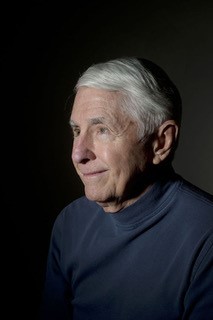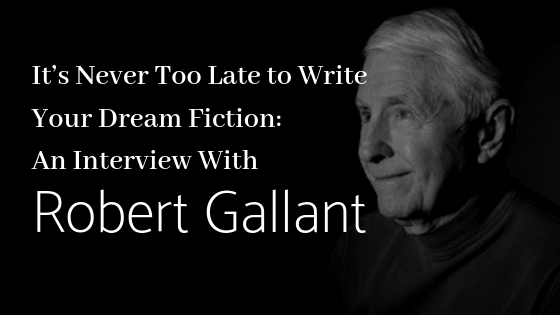Robert Gallant, now in his early eighties, has finished yet another fiction masterpiece, “Satan’s Stronghold”, and let me tell you, he’s not ready to slow down soon. With three families in tow—his sons’ plus grandchildren—he shares that he feels much more comfortable writing and developing stories now, and has received a lot of praise from book reviewers and readers. This, my friends, is solid proof that one can still pursue their dream of writing their dream fiction at any point in their life and actually be successful in it.
All throughout his writing career, he was riddled with several challenges. There were unsupportive friends, publishers who conned him with a lot of money, and the struggles of coming up with a gripping story. Inspiration does not always come in huge waves, but Robert managed to write a few top sellers, and delight so many readers at that.
In this exclusive interview, he shares snippets of this journey, as well as inspiration on writing your dream book…no matter what age you’re at.

What made you to decide to be an author?
I enjoyed creating adventure stories as a kid. While taking high school Biology, I pretended I was swallowed by a giant sea serpent and befriended by a huge antibody. Together we traveled throughout the body, seeing how it worked and going through an exciting adventure at each location. I told myself that someday I would write exciting novels that also provided important information to the reader.
During my career in technology/business, I wrote technology articles that were very popular with readers. I published over 50 articles in science journals and three books on technology that became references at colleges and in technology businesses.
After I retired, I set out to fulfill my lifelong dream of writing fiction novels that were both suspenseful and also provided readers with meaningful knowledge in technology, culture, history and/or geographic locations. To do that, I spend over a year of intense research on every novel I write.

What was an early experience where you learned that language had power?
When I began publishing technology articles that focused on providing knowledge that enabled the reader to both understand the technology and how to utilize it in their work. My articles were so popular, that I ended up with over 50 articles published in technology journals and the editors worked to publish my articles in a series of technology books.
How much do you care about what other people think of you?
I want people to believe that I will do what is right for everyone concerned rather than what benefits me the most. A couple times in my life I violated that rule and it still hurts to look back at it.
Do you try more to be original or to deliver to readers what they want?
I want my stories to provide an exciting suspenseful novel and also to provide an in-depth knowledge of the culture, geography, history of the locations; and an explanation of the technology in the story that the reader can readily grasp and appreciate.
How do you balance making demands on the reader with taking care of the reader?
It is critical to write at a level that enables the reader to grasp the full meaning of the story, the people, and the events.
Do you read your book reviews? How do you deal with bad or good ones?
I read every book review I know about. The good ones make me feel that I’m doing the right writing. A bad review is important because I can learn from it and work at how to keep it from happening in my future novels.
What does literary success look like to you?
I want the reader to find it impossible to put the book down. They keep turning to the next page. And I want them to gain knowledge that they didn’t have before. I was pleased when a nurse told me that my “The Armageddon Virus” novel did a better job of explaining how viruses operate and what makes them so deadly than the textbooks she read in nursing school. She tells new nurses to buy my book and read it.
Do you want each book to stand on its own, or are you trying to build a body of work with connections between each book?
Five of my six books feature Chesney Barrett as the most important person. So it is a series but each book can stand on its own. My other book is Rob The Vatican, a unique story of how an American jewel thief figures out how to rob the supposedly impregnable Vatican. I spent over 5 years researching the Vatican in order to learn how to actually rob the Vatican.
What’s your favorite under-appreciated novel?
Chitty Chitty Bangbang became famous only after Disney made a great movie out of it. A perfect story of a frustrated inventor who finally becomes a hero.
If you didn’t write, what would you do for work?
I would focus on doing lots of meaningful exercise and encouraging others to do the same. I would be a speaker talking about what a retired person should focus on. Number one, exercise every day because it will keep you feeling young. Number two, take on new challenges, so that your brain stays active. Don’t be afraid of failing, because that is often a step toward being successful. Number three, never be so preoccupied with your problems that you don’t help those around you. Number four, have fun doing it.
With decades representing his body of work in technology and Chemical Engineering, “Bob”, as he is fondly called by many, has decided to tread his golden road, writing exciting, heart-stopping fiction, and continues to follow the call of his dreams.
“Some dreams don’t sail away; perhaps they were built to stay, engaging ever strongly than the tide that chase them at bay.”


